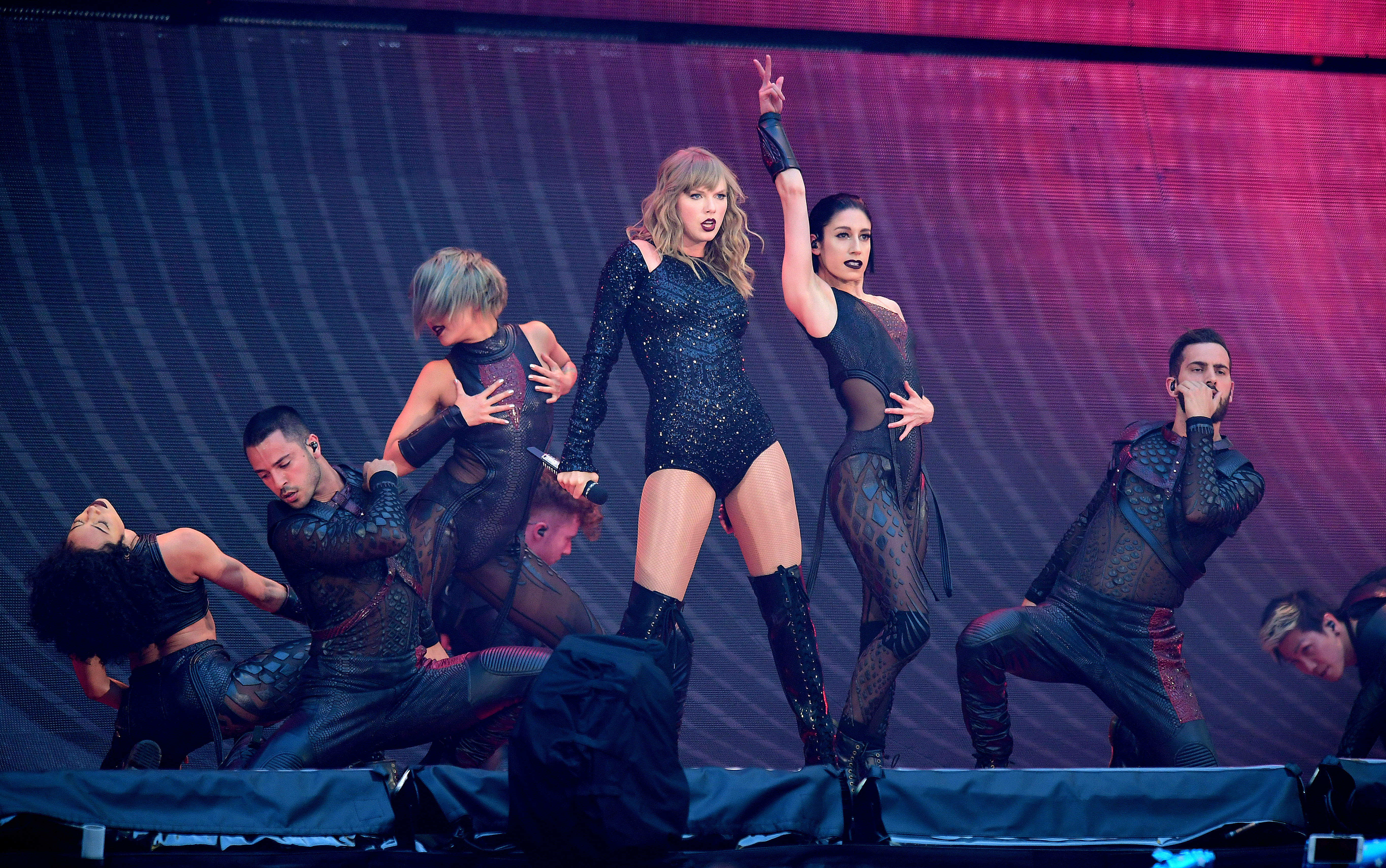Taylor Swift: Welsh woman 'kicking herself' after falling victim to ticket scam

A Welsh woman who fell victim to a scammer pretending to sell Taylor Swift tickets wants to raise awareness to stop the same thing happening to others.
Sian Williams had received a text from a friend saying another friend had posted on Facebook to say she was selling tickets for one of Taylor Swift's Anfield concerts.
Sian, from Blaenau Ffestiniog, said that, over text, her friend brought the post to her attention and asked to share Sian’s number with the woman she believed to be selling the tickets.
“Because it was a friend of a friend, at no point had I seen any red flags, any warnings," Sian said.
"I’d seen proof of the tickets off the Ticketmaster website, where the seats were and so on, to purchase the tickets.”
Sian said the conversation moved on to transferring money, which she said she was told would cost £500 for four tickets.
She said she was asked if she had a Revolut or Monzo card, instead of doing the transaction trough a bank transfer or through PayPal.
Due to a £250 cap for transfers on her daughter’s Monzo card, the transaction had to be done in two stages. However, it was only when the initial £250 was accepted by a name that Sian didn’t recognise, she realised it was a scam.
“It sounds absurd now and I’m kicking myself because we’re quite savvy in our house. We go to quite a lot of concerts so I’ve bought tickets from various sources over many years,” Sian said, adding that they did not send the second transaction one they realised it was a scam.
When she realised what had happened, Sian said she tried to persuade the scammer to return the money.
“It was never going to happen, but it was worth a try,” she said.
Sian added that she has raised the issue with Monzo, but was told she would be unable to get the £250 back.
Sian said the friend of a friend had had her Facebook account hacked and was “blissfully unaware” at the time.
Sian had intended to buy the tickets as a congratulatory present for her daughter for finishing her A-levels. However, due to the high price of tickets, Sian says they haven’t bought any.
“We really, really want to go. It was just trying to source these tickets from wherever we could," she said.
"Because we failed initially to get the tickets - you got a code off Ticketmaster and then you had to join a queue - I didn’t even get a code, so I go nowhere near the initial ticket sales. It was just a case of keeping an eye out - was anyone selling them?”
Sian says she has seen similar scams since. “I recognise the scam now but at the time I was absolutely naive and I fell into the trap.”
She now wants to raise awareness to stop others from falling victim to the scams in the run-up to the concerts.
“It’s important everybody knows what’s going on,” she said.
“It was a sort of rollercoaster of emotions that day. From the elation of thinking, ‘oh my gosh, we might actually be going’, to the fact that we lost money in the end and also don’t have tickets,” she said.
In a post on their website, Ticketmaster offered advice to concert-goers on how best to avoid scams.
They said: "Only buy tickets from official sources. With any event, official ticketing agent/s or the venue is the best place to buy tickets from. Check out the artist’s own website, as the official ticket source/s will always be listed there.
"Avoid buying tickets from individuals on social media or other unofficial platforms. Do not purchase tickets before a tour has gone on sale. These will not be legitimate tickets (this does not include things like official pre-sales)."
A spokesperson for Monzo said: “We’re sorry this customer fell victim to fraudsters and understand how upsetting this would have been.
"We urge customers to be vigilant when buying things on social media - with over 70% of these kinds of scams originating online - and to take steps to protect themselves by using trusted sites and ending the conversation if something doesn’t feel right.“
Want a quick and expert briefing on the biggest news stories? Listen to our latest podcasts to find out What You Need To Know...